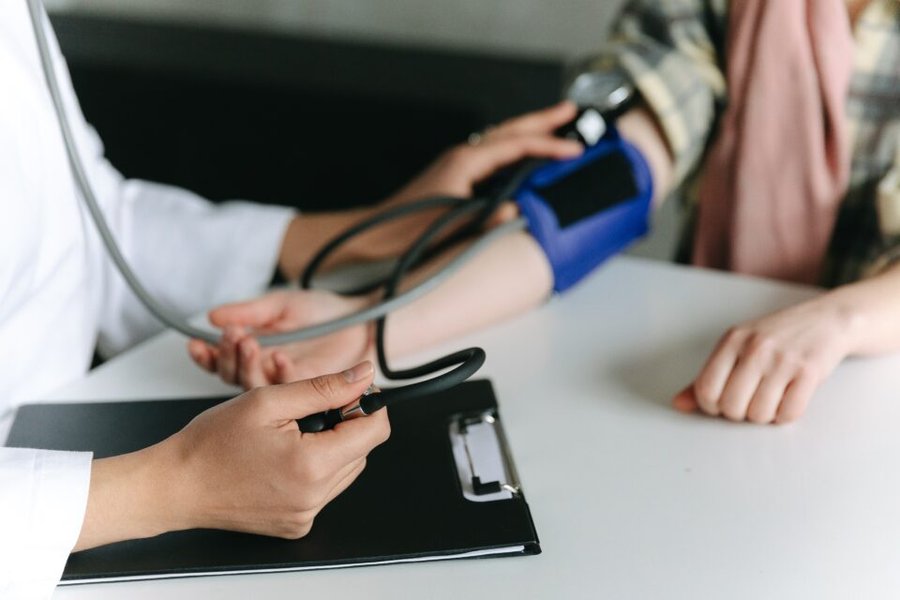It’s a good idea to take extra precautions to protect yourself during the coronavirus (COVID-19) outbreak if you have high blood pressure. According to preliminary studies, people with the syndrome are more prone to:
If you get COVID-19, your symptoms will get worse.
Featured Image Credits: Getty Images (SUROTBAR)
Also check out: What is the difference between Hypertension and Hypotension? Know here everything
The infection will kill you.
People with high blood pressure had a higher risk of COVID-19 infections and consequences, according to new research.
According to preliminary data from both China and the United States, high blood pressure is the most frequent pre-existing disease among hospitalised patients, impacting 30 per cent to 50 per cent of those admitted. Cancer, diabetes, and lung disease were among the other health issues. According to a survey in Italy, more than 99 per cent of persons who died from the virus had one of these illnesses, with high blood pressure accounting for 76 per cent of those who died.
Also check out: How is Bipolar disorder and depression different? – Know all about its Symptoms and causes
According to other studies, patients with high blood pressure are somewhat more likely to die from the coronavirus. Their risk is roughly double that of the general population.
People with high blood pressure and other health conditions are more susceptible to coronavirus because their immune systems are weakened. Long-term health problems and ageing impair your immune system, making it less equipped to combat the virus. High blood pressure affects about two-thirds of persons over the age of 60.
Another explanation is that the increased risk is due to specific medicines used to treat high blood pressure, such as ACE inhibitors and angiotensin receptor blockers (ARBs).
The notion is based on the fact that ACE inhibitors and ARBs increase the amounts of an enzyme in your body called ACE2. The COVID-19 virus must also bind to ACE2 to infect cells.
Also check out: How to identify Bipolar disorder in Children? Symptoms and Causes
There are no links between the usage of these medications and the severity of COVID-19, according to several big investigations. According to other research, they may make COVID-19 less severe. No evidence discontinuing them makes people’s illnesses any less severe.
Stopping these drugs could exacerbate heart and kidney problems. It can also increase your chances of dying.
The American College of Cardiology and the American Heart Association advise that you continue to take your blood pressure medication as directed. If you don’t, you risk having a heart attack or stroke, which might land you in the hospital at a time when coronavirus instances are on the rise.
The most common complication of the infection is pneumonia, but it can also harm the cardiovascular system.
High blood pressure causes artery damage and restricts blood supply to the heart. As a result, your heart will have to work harder to pump adequate blood. This increased exertion might weaken your heart over time, causing it to be unable to pump as much oxygen-rich blood to your body.
Coronavirus can also cause direct damage to the heart, which is especially dangerous if your heart is already damaged due to high blood pressure. The virus may induce myocarditis, an inflammation of the heart muscle that makes it difficult for the heart to pump.
If you have plaque accumulation in your arteries, the virus may make them more prone to break apart, resulting in a heart attack. People with heart problems who acquire a respiratory illness like the flu or early kinds of coronavirus are more likely to suffer a heart attack, according to previous research.
To avoid contracting the coronavirus, everyone should take precautions. People with high blood pressure and other health problems should be very cautious.
The CDC recommends the following:
Make sure you have enough medicine to address high blood pressure and other illnesses.
If you get sick, stock up on over-the-counter drugs to treat fever and other symptoms.
Stay at home as much as possible and restrict your contact with others.
Avoid crowds and anyone who appears to be ill. If you have to be in a public setting where you can’t stay at least 6 feet away from people, use a face mask.
Hands should be washed frequently with soap and warm water.
All regularly touched surfaces, such as countertops and doorknobs, should be cleaned and disinfected.
Although several coronavirus vaccines have been approved for emergency use, it is unclear when they will be available to the general public. Other immunizations should be kept up to date, according to the American College of Cardiology. You won’t get pneumonia from the coronavirus if you get the pneumococcal immunisation. Also, get vaccinated against the flu. Its symptoms are similar to those of coronavirus, making it difficult for doctors to diagnose you if you become ill.




